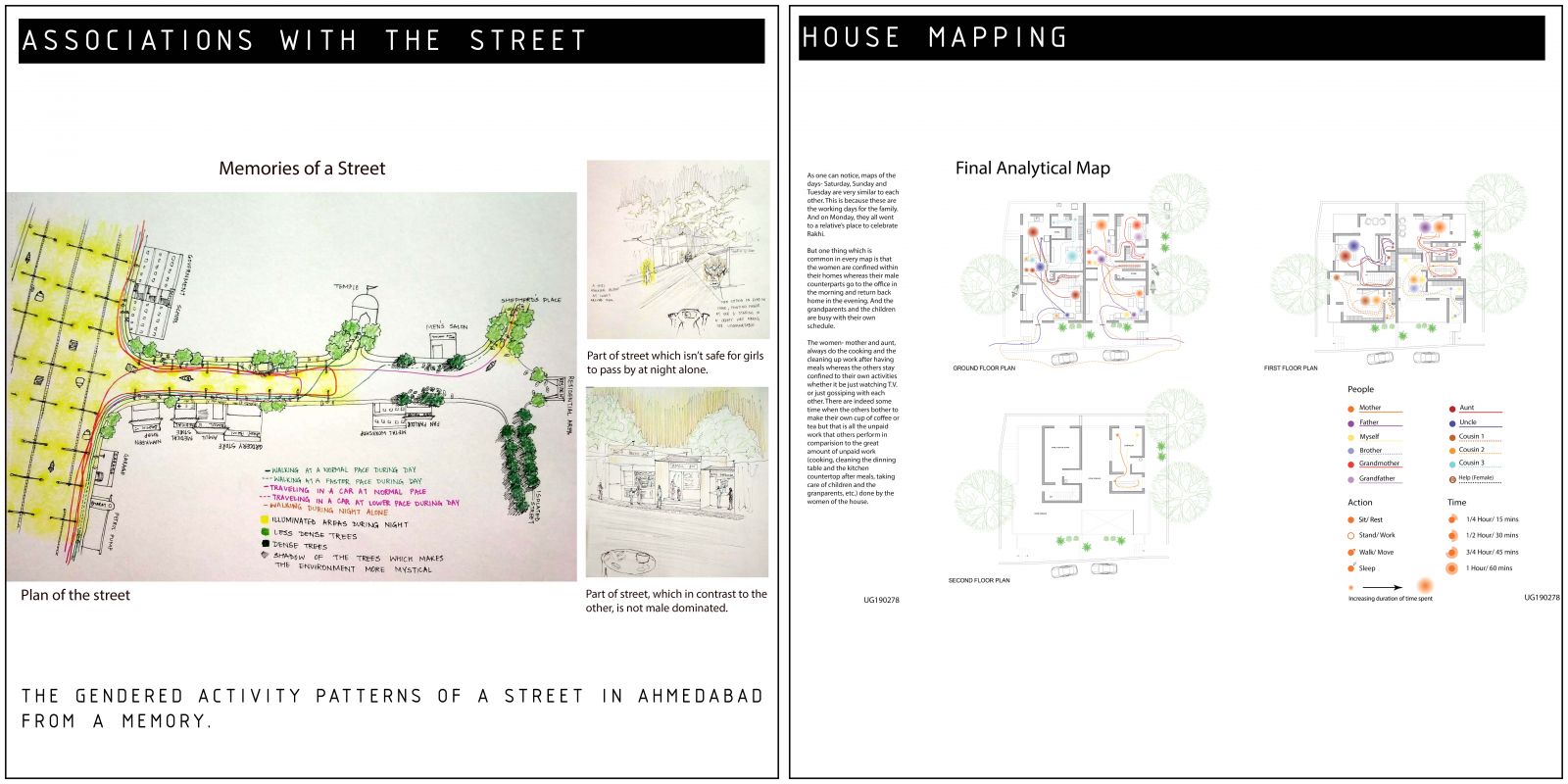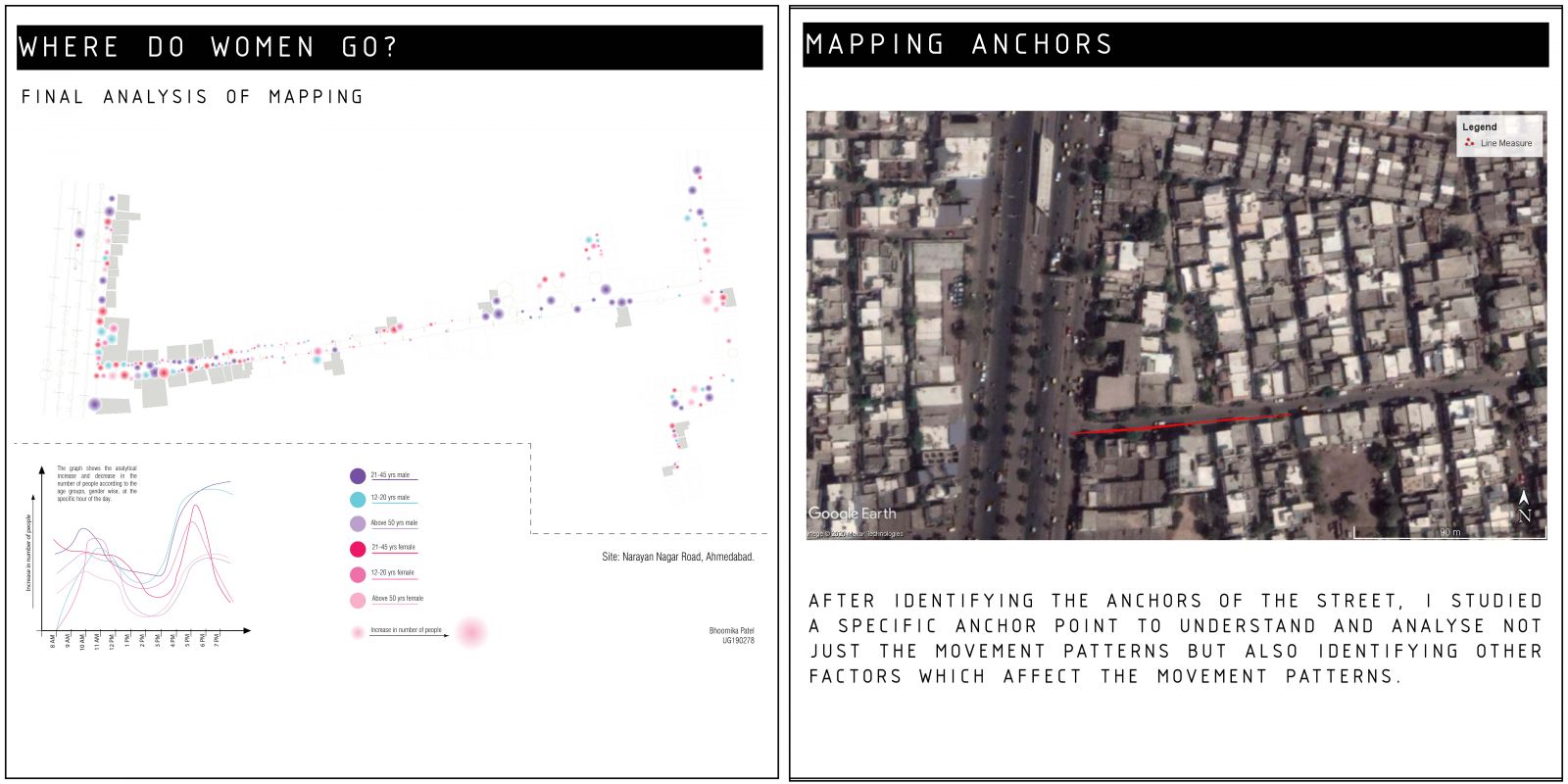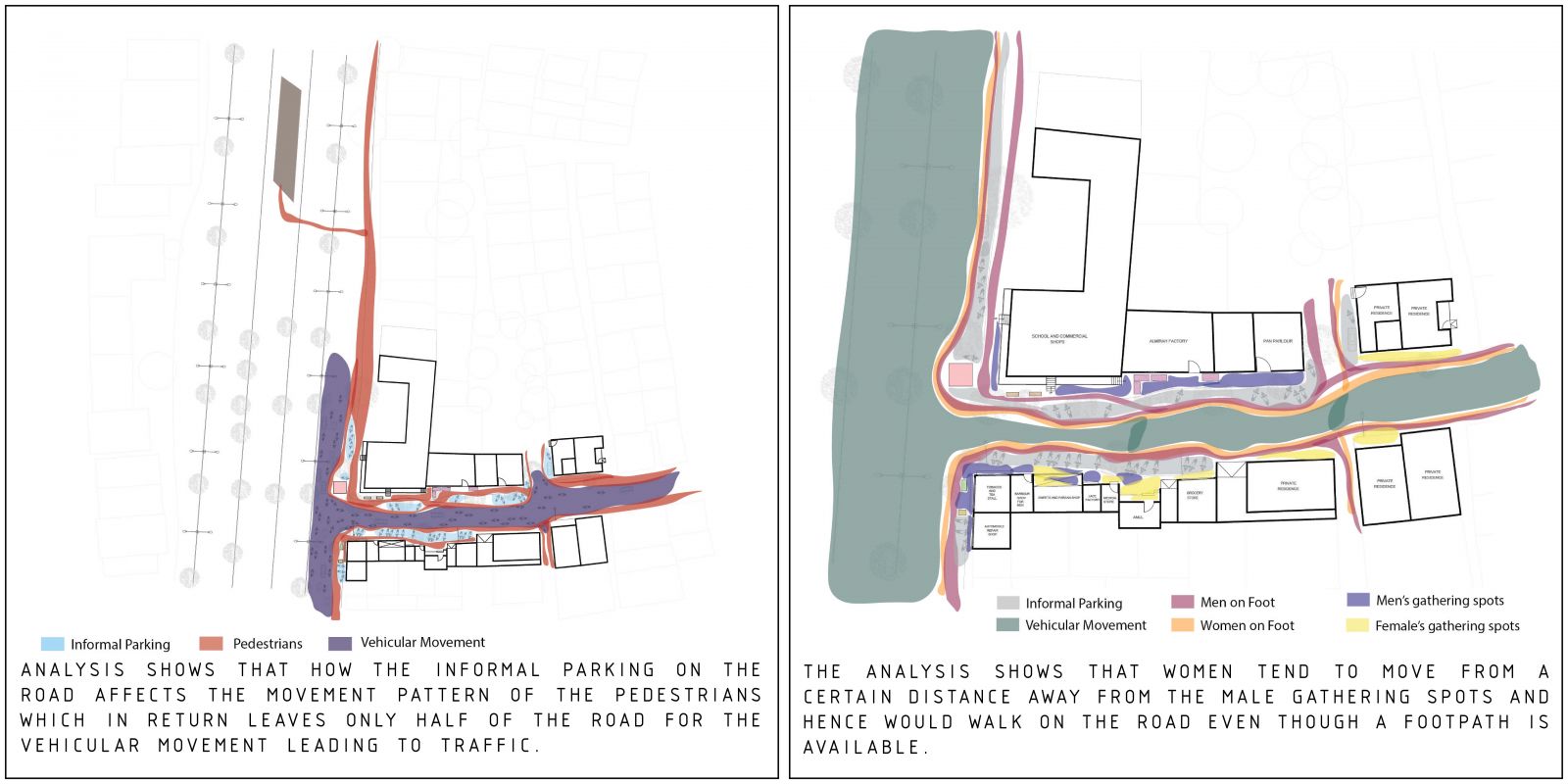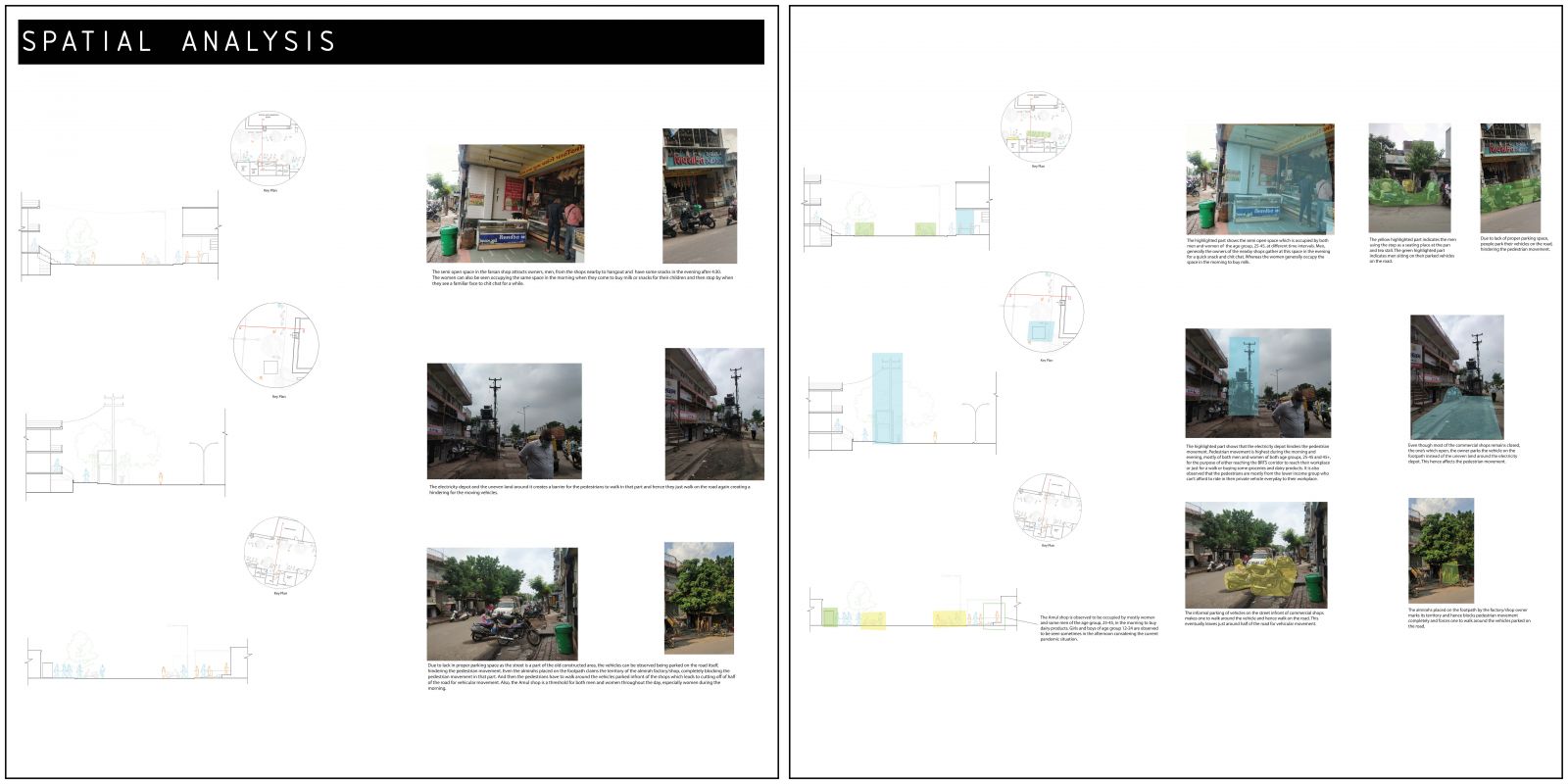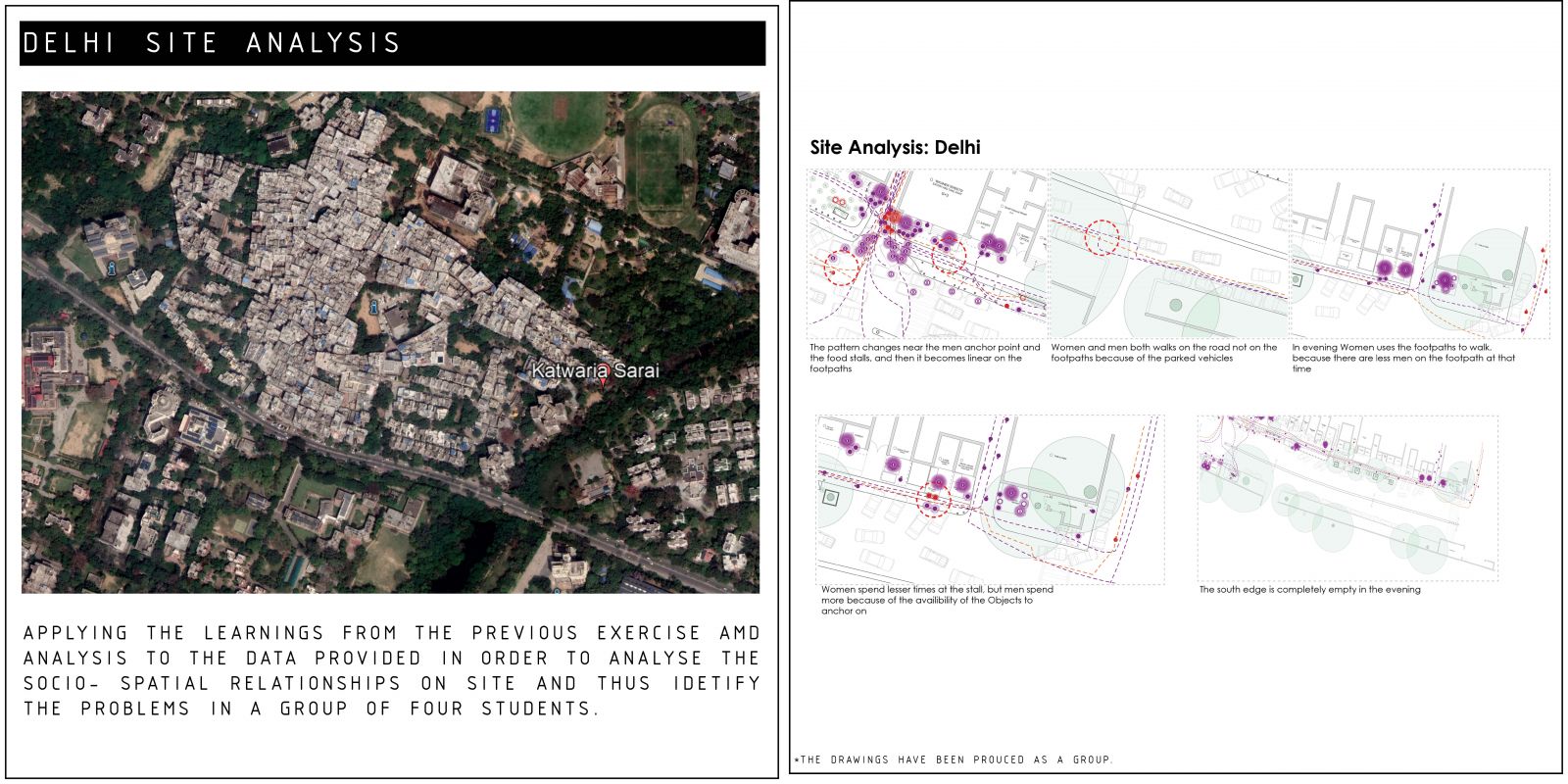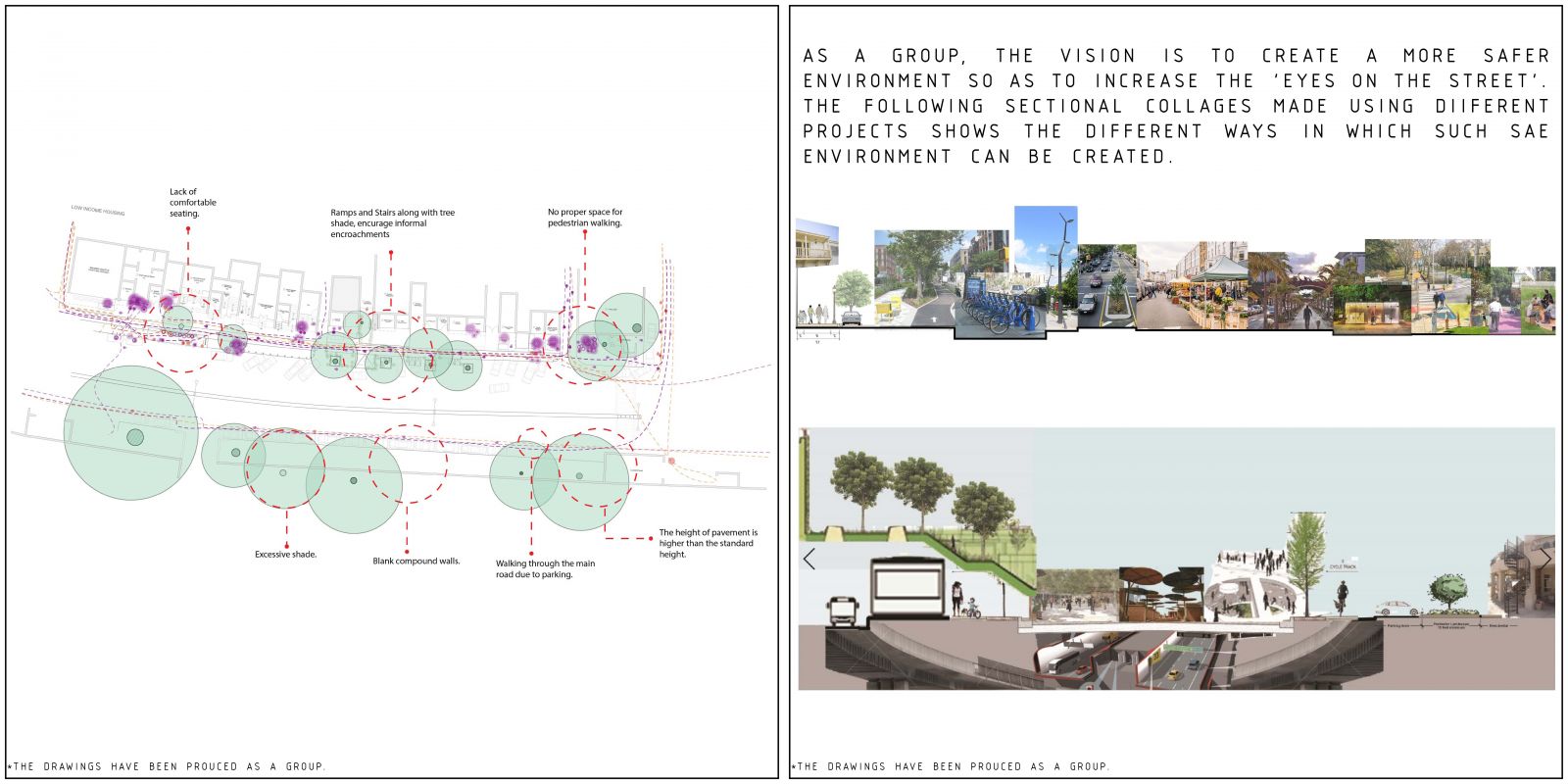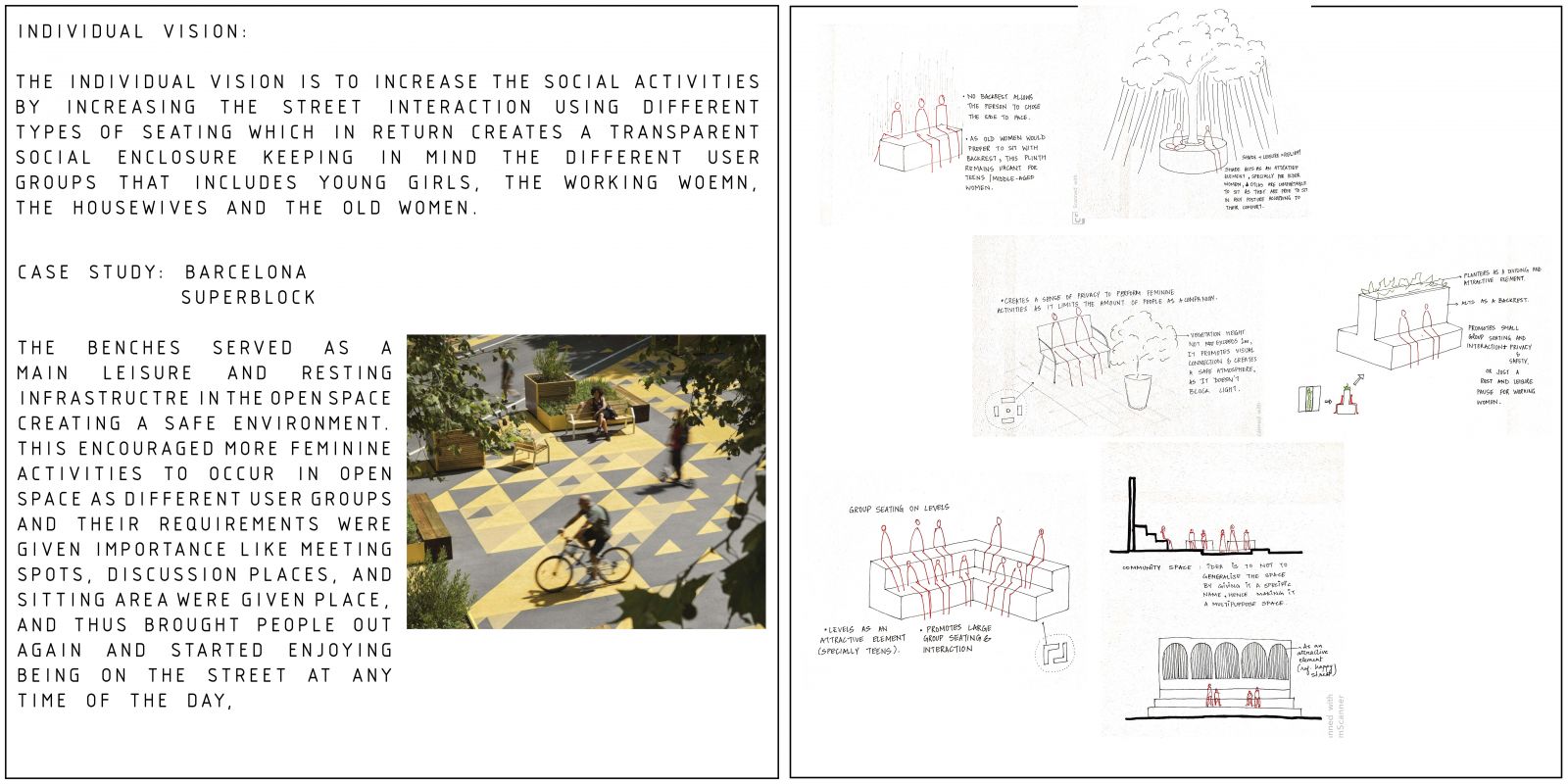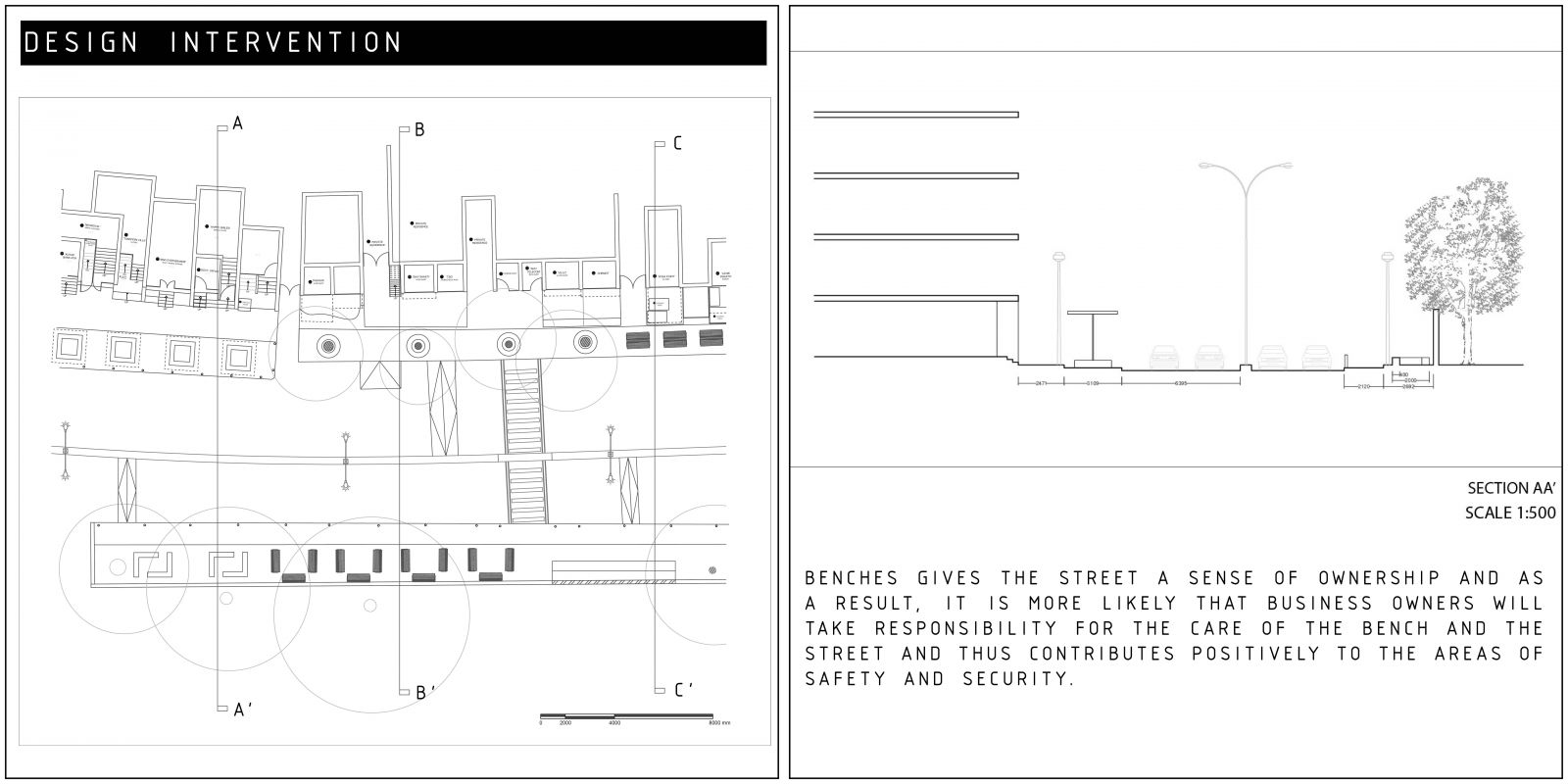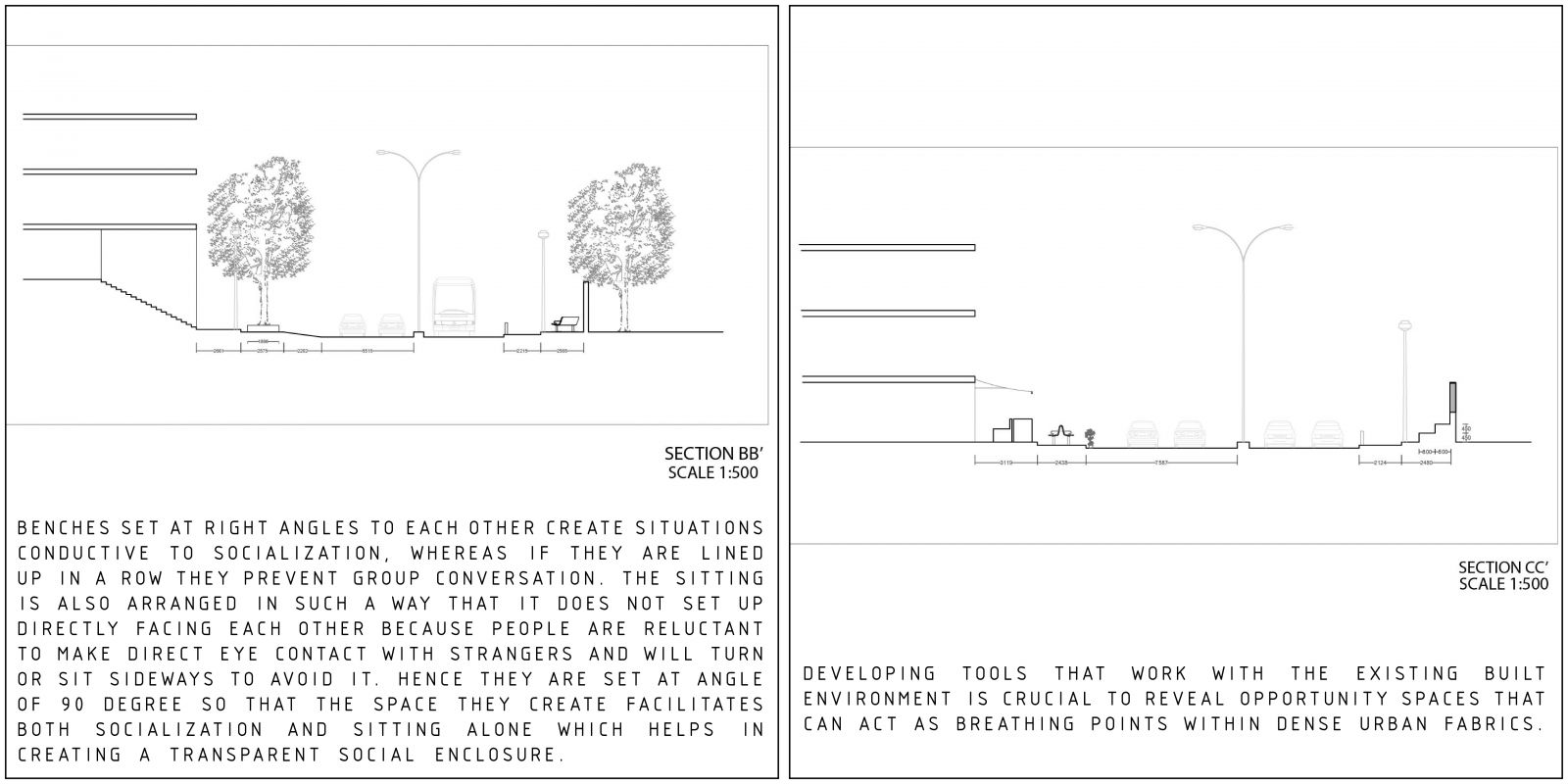Your browser is out-of-date!
For a richer surfing experience on our website, please update your browser. Update my browser now!
For a richer surfing experience on our website, please update your browser. Update my browser now!
In India, it is apparent that the street as a public space belongs more to a man than a woman. Unfortunately, the two kinds of gender studies that exist today focus on how gender behaves, what gender does, and how it does not have equal access to the city. What the studies miss out on is how gender performs itself with respect to the space that it is in. The studio will focus on three areas of concern in this regard: connectivity, accessibility and right to the city. Since the city constantly legitimises domesticities for women, especially women from poor households, it will essentially focus on women who are especially from underserved communities, because gender issues get intensified at the intersection of caste, class, community and so on. The studio does this by focusing on mapping and analysing the socio-spatial practices of gendered bodies in order to establish the unique challenges of access that they face. The movement of gender in the city will be mapped and a system of gendered movement defined to collectively re-imagine accessibility, connectivity and right to the city.
